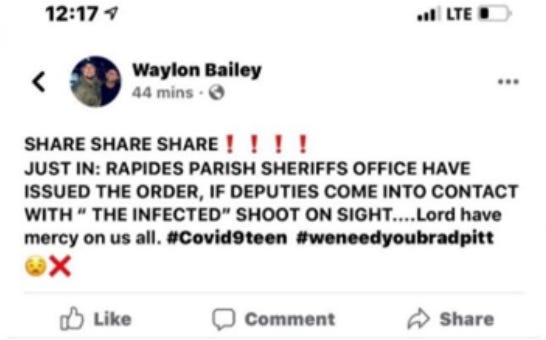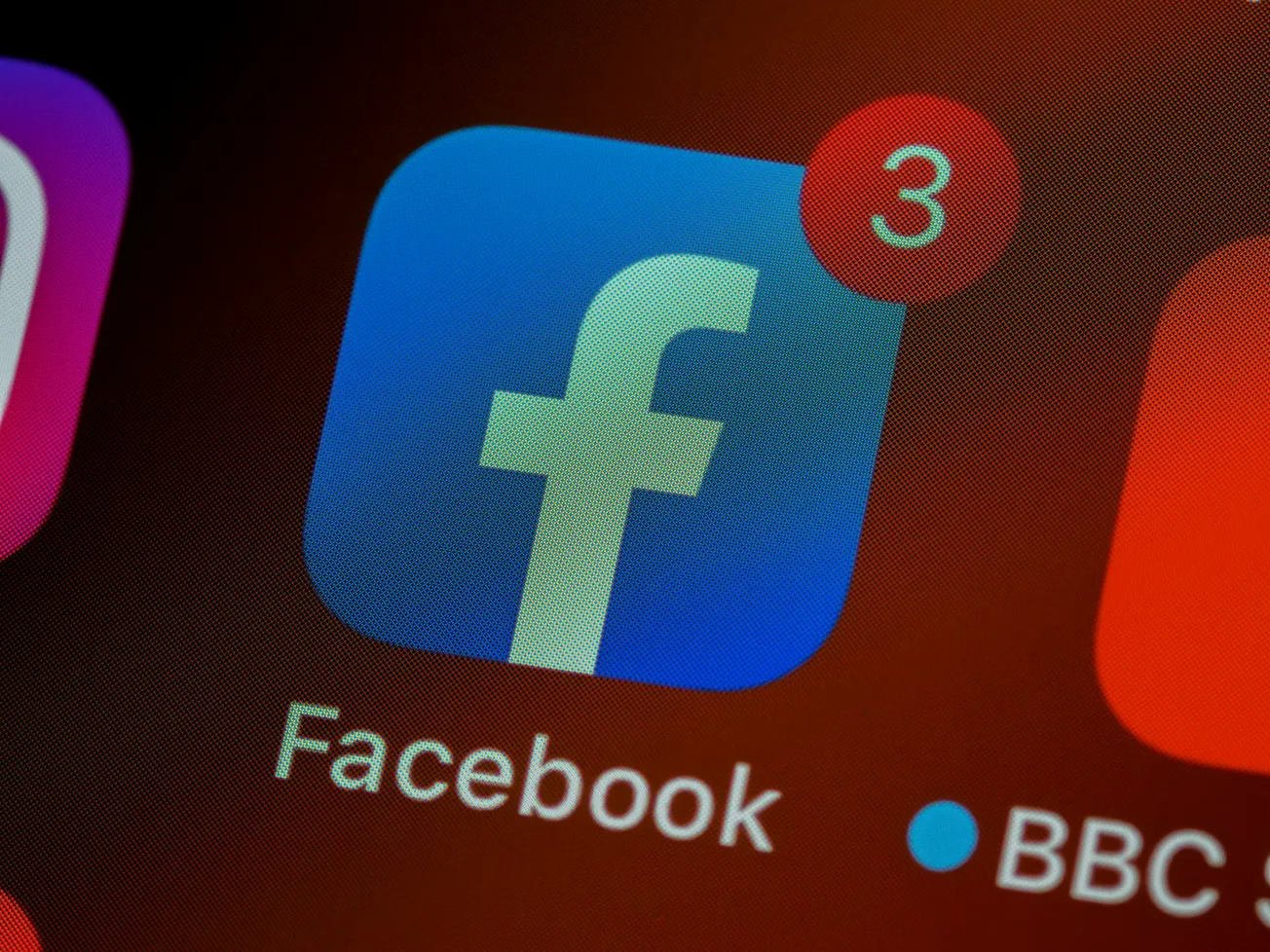Table of Contents
Jon Miltimore
Jonathan Miltimore is the Editor at Large of FEE.org at FEE.
On the evening of March 20, 2020, Waylon Bailey was bored. Like nearly all members of the public at the time, he was under “lockdown” because of the COVID-19 pandemic. So, he decided to post a joke about it:
“SHARE SHARE SHARE ! ! ! ! JUST IN: RAPIDES PARISH SHERIFFS OFFICE HAVE ISSUED THE ORDER, IF DEPUTIES COME INTO CONTACT WITH “THE INFECTED” SHOOT ON SIGHT….Lord have mercy on us all. #Covid9teen #weneedyoubradpitt.”

Bailey thought his post was funny, especially the last part, a reference to World War Z, a 2013 movie starring Brad Pitt in which a U.N. employee tries to save the world from a zombie pandemic.
Officials at the Rapides Parish Sheriff’s Office were less amused, particularly detective Randell Iles, an investigator with the department who saw it as a “terrorizing” event.
Hours after he posted the joke, a SWAT team descended on Bailey’s Louisiana home. According to court documents, officers with guns drawn ordered Bailey to his knees. He was placed in handcuffs, told he was under arrest, and instructed that his next Facebook post should tell readers “not to f*** with the Police.”
The Rapides Parish Sheriff’s Office, which did not have a warrant to arrest Bailey, argued that the post was a threat to public safety and a criminal act. The district attorney disagreed and declined to prosecute, but Bailey, a father and hard-hitting boxer, was not done. He sued Iles for false arrest and for violating his First Amendment rights.
Initially, Bailey made little headway in his lawsuit. U.S. District Judge David Joseph dismissed the suit with prejudice, reasoning that Iles had probable cause and was protected by “qualified immunity,” a legal doctrine that shields government officials from civil liability when performing their public duties — even when the conduct is criminal.
While it looked like Iles would be the latest government official to walk away freely after trampling the rights of an innocent citizen, the 5th U.S. Circuit Court of Appeals had other ideas.
Earlier this month, after reviewing the details of the suit, a three-judge panel reversed the district judge’s ruling, concluding that police officers were not entitled to qualified immunity “because no reasonable officer could have found probable cause to arrest Bailey for violating the Louisiana terrorizing statute.”
A jury promptly agreed. It awarded Bailey $205,000 in compensatory and punitive damages, which it ordered the Rapides Parish Sheriff’s Office to pay for violating his free speech rights.
“It is telling that it took less than two hours for a jury of Mr. Bailey’s peers in Western Louisiana to rule in his favour on all issues,” said Andrew Bizer, Bailey’s trial attorney. “The jury clearly understood that the Facebook post was Constitutionally protected speech.”
Not everyone is as fortunate as Bailey.
USA Today has chronicled some of the more egregious examples of qualified immunity protecting police from civil liability for bad behaviour, including officers who stole $225,000, a police officer who shot a child (while trying to shoot his non threatening dog), a SWAT team that launched gas grenades into a woman’s house even though she had done nothing wrong, and “prison officials who locked an inmate in a sewage-flooded cell for days.”
All of these public officials were shielded from liability under the umbrella of qualified immunity, as were police officers who arrested Ohio resident Anthony Novak in 2016 over a parody page of the Parma Police Department.
Unlike in Bailey’s case, judges for the 6th U.S. Circuit Court of Appeals rejected claims that police officers had violated Novak’s First and Fourth Amendment rights when they raided his home over a spoof page of their Police Department, ruling that police officers were protected by qualified immunity.
Novak appealed to the Supreme Court, but the high court declined to hear the case. And this is why a Slate article is right to call Bailey’s win “significant.”
“At least in the 5th Circuit, which covers Louisiana, Texas, and Mississippi, government employees will be on notice the next time they are tempted to use shock and awe to silence satire they do not like,” Ben Field and Daryl James of the Institute for Justice wrote. “Telling jokes is protected speech under the First Amendment.”
Indeed. And this is exactly why qualified immunity is Bizarro World justice.
The entire purpose of government is to protect individual rights. Qualified immunity, an undemocratic legal doctrine that was not passed by Congress but created by the Supreme Court in the 1960s, does precisely the opposite. It shields government actors from consequences even when they clearly violate individual rights that the government exists to protect.
As a society, we like to talk a lot about the need for better policing. But changes in this direction are unlikely to happen if we continue to protect police from civil liability simply because they’re wearing a badge when they violate our rights.
This article originally appeared in The Washington Examiner.
This article was originally published on FEE.org. Read the original article.









